Le Chevalier D'Eon: Book 3
Introduction
Historical fiction is something of an odd beast. It rarely equates to actual history, and that's not just the 'fiction' bit. Creators usually take what appeals to them most about the past, and mould these things to fit their stories. It also has to actually appeal to audiences, which is why most historical recreations aren't all that scrupulous when it comes to hygiene and medicine. Sunday night costume dramas would be far less appealing if characters were throwing sewage out of top story windows, and if streets were populated with deformed and afflicted extras. Historical dramas are more a reflection of our society and values than they are an accurate depiction of the time, and it's interesting to see ethnic diversities in periods that surely would have lacked them, or strong female characters in cultures where women were traditionally treated as second-class citizens. There's an added fascination to be had when it's another culture looking at a familiar history through their eyes. Le Chevalier D'Eon is a modern Japanese twist on European history, and it makes for interesting viewing indeed.
For d'Eon de Beaumont, it should have been the culmination of his ascension to the highest levels of nobility, but the day he was elevated to the Royal Court at Versailles, was the day that his sister Lia's body was fished out of the river, in a coffin with the word Psalms daubed on the lid in blood. Since then, he's spent more time away from the court than not, searching for his sister's murderers, haunting the Paris back alleys, and prowling the city streets at night. But his investigation leads to a dark conspiracy indeed, one that reaches to the highest levels of European royalty, involving the invocation of dark and mysterious powers by arcane spell-casting Poets. Fortunately, d'Eon is not alone, he has allies, and chief among them is Lia's soul. She's come back from the dead to avenge her murder, although to do so she has to possess her younger brother's body.
The next four episodes are presented on this disc from ADV.
9. The Lovers
D'Eon has his audience with the Empress Elizaveta, and contrary to his concerns, he learns how much his sister was revered by the Russian monarch. Her need to maintain the stability of her country has kept her from acting, but she gives free rein to d'Eon to pursue Vorontsov, even naming Grand Councillor Bestuzhev as the man behind the crime. But back in the hotel, d'Eon hears of the plot against the Empress from Durand and Teillagory. The life of the Empress comes before his search for vengeance, and he chooses the same path that his sister did, to protect Elizaveta. By doing so, he may have missed his chance to capture Vorontsov, while the Empress is careless of her own safety.
10. The Royal Psalms
The hunt for Vorontsov continues, although the Russian Captain of the Guard has no particular appreciation for the four Frenchmen in the Russian Court. After the previous setback, the Revolutionary Brethren have a new plan. It's a plan that requires the soul of Lia de Beaumont, and Cagliostro needs just the right bait to lure d'Eon into a trap, so that the soul can be transferred into a new vessel. Meanwhile Robespierre is intent on putting the Royal Psalms to use, but to do that, he requires royal blood.
11. The Rain on St. Petersburg
Pyotr is next in line to the throne of Russia, and he's rubbing his hands with glee at the prospect of his imminent ascension. However Elizaveta has her own plans for Russia, and has a more appropriate heir in mind, Pyotr's long-suffering wife, Ekaterina. When the worst happens, Ekaterina goes to the four Frenchmen, and asks their aid in ensuring the safety of the Russian throne. The Revolutionary Brethren have got what they needed from Russia, and if their puppet can't ascend to the throne, they'll just have to clear the mess away and move on. Pyotr doesn't matter, but Grand Councillor Bestuzhev knows too much, and in the mayhem, Robespierre deals with him. But d'Eon has finally found Vorontsov, and he's determined to find the truth behind Lia's murder.
12. Rest in Peace in Your Motherland
It's frustrating for both sides, as little is gained during their final confrontations. The status quo remains in Russia, the revolution is thwarted, and a progressive Empress still sits on the throne. Meanwhile, Robespierre has read the first verse of the Royal Psalms, and has moved on, leaving a challenge for d'Eon, and his declaration of war against Louis XV. D'Eon is conflicted, especially after seeing such a noble and loyal man like Vorontsov, so driven to actually stand against his country and monarch. D'Eon worries about the strength of his own loyalty.
Picture
The 1.78:1 anamorphic transfer is clear and sharp, although there is the usual smidgen of NTSC-PAL conversion issues to put up with. It's nowhere near as bad as it could be though, and by and large this is in the top range of anime transfers. It needs to be good, as it's a Production IG animation, with all the attention to detail and reputation for excellence that implies. The character designs are realistic rather than stylised, the costume designs are astounding, and Europe of the eighteenth century is brought to vivid life. The final result is a very high budget look. The animation is top-notch as well; it's worth seeing some of the fencing sequences as an example of the research and veracity.
Sound
You have a choice of DD 5.1 English and Japanese soundtracks, along with an optional translated English subtitle track, or simple signs to accompany the English track (The signs more often than not translate French text onscreen, not Japanese in this case). The surround is very impressive, certainly working well in the action sequences, and also conveying the orchestral music with a suitable level of grandeur. My choice as always was for the Japanese track, but from what I sampled of the English dub it is exceptional, well cast and well performed. The 5.1 Surround is also a tad more expressive in the English dub, so that may swing it if you waver over which language to listen in.
Extras
This has character designs and info for Louis XV, Broglie, and Bernis printed on the inside of the Amaray cover.
The booklet, entitled Chapter 3 runs to 16 pages, and offers character designs and info for Queen Marie and Belle. There is a look at Robin's gun, a glossary of key words used in the show, an interview with Yuki Tai, the Japanese voice of d'Eon de Beaumont, and part three of a prequel side story presented in the form of a script.
On the disc you'll find four commentaries. Chris Hutchinson (Bestuzhev) joins ADR director Steven Foster on the episode 9 commentary, Lesley Tesh (Lorenza) and Amit Patel (Robespierre) step inside the booth for episode 10, Steven Foster hosts Alice Fulks (Elizaveta) on the commentary for episode 11, and finally on episode 12, Jessica Boone (Ekaterina) joins Jose Diaz (Pyotr) for a chat. I wasn't impressed with these tracks, they are essentially interviews, with the actors talking about their careers and having a bit of a gossip, while any mention of the show is usually repetitive and redundant. There's nothing new here, especially if you've heard the commentaries in the earlier volumes. These are really for fans of the voice actors, not for fans of the show. Once again, be aware of some profanity in these commentary tracks.
The Historical Notes offer the truth behind the fiction, giving a glimpse at the setting of the story, as well as some of the real life characters that get fictionalised in it. There are 6 articles to read, compiled with the aid of the Encyclopaedia Britannica, and Wikipedia. Four of the real life historical Russian figures are profiled, and there are a couple of articles on St Petersburg (I still call it Leningrad), and the Little Ice Age.
You'll find the clean credit sequences, trailers for Pani Poni Dash, Shadow Skill, Kurau Phantom Memory, Guyver and Utawarerumono, as well as a preview for Volume 4 of Le Chevalier D'Eon.
The disc gets the usual animated menus, in this case very evocative and well accomplished, as well as the usual jacket picture.
Conclusion
Le Chevalier D'Eon is the hardest sort of anime to review in volumes. It's one serial story, with each episode adding a little more to an overall mystery. There's no way that you can accurately draw a picture from a snapshot of just four episodes, and while each successive volume adds something to the whole, it will be the final volume, indeed the final episode that will determine what I think of this series in its entirety. It's like trying to review your favourite novel, chapter by chapter, ultimately a pointless exercise.
But it is a gripping story that is unfolding. The mystery gets deeper with each successive episode, the plot twists and turns like an anaconda, and the show remains infuriatingly ambiguous about the nature of its protagonists and antagonists. It's here that the real life historical events begin to cast overtones over the characters. The way that the story is presented at this point, it's the conservative faction, the aristocrats who are the heroes. D'Eon fights to preserve a way of life, prove his loyalty to the crown and the nation that he holds dear. The 'villains' of the piece, Robespierre, Saint Germain and the other progressives wish to change Europe, to cast off the shackles of the past and establish a new order. Their methods amount to using the occult and necromancy to achieve their ends, something that seems nefarious and underhand. Looking back at history though, the aristocracy, the royalties of Europe were the institutions that needed reform, their excesses and rivalries constantly laid waste to the land, and the underclass were downtrodden, abused and forgotten. It gives characters like Robespierre and Vorontsov dimension, when you consider that their plans and conspiracies may all be motivated by well meaning and just beliefs.
This conflict becomes apparent by the end of this volume, with Vorontsov turning out to be a tragic figure, torn between his loyalty to Russia the nation, and his loyalty to the Empress. Similarly, d'Eon begins to contemplate his position, wondering if whether faced with the same dilemma, he would act the same way. The honesty and depth of characterisation reveals how much thought has been put into the anime, and is simply one more reason why it is so compelling to watch.
I am beginning to feel the victim of hype though. Le Chevalier D'Eon is a beautifully animated piece, simply lush and divine, a feast for the eyes. The characters are complex and enigmatic, the story gripping and well written, and the scope of the show is grand and theatrical. But I'm not feeling the all-embracing love for it that others have vociferously espoused. It's a fine show, but it isn't the best thing since sliced bread. There's something about the mystery, the ambiguous characters and apparent reluctance to drop any hints that keep me at a distance. I'm spending more time thinking about the show than I am emotionally involved with it, and that isn't always ideal. As mentioned, this isn't a series that takes well to being reviewed in chunks, and how subsequent volumes develop will have bearing on my opinion of the series as a whole.

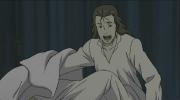
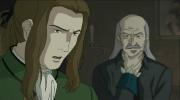
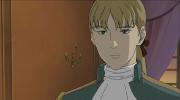
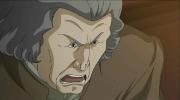
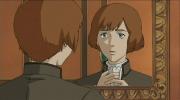
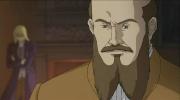
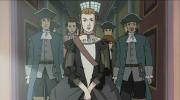
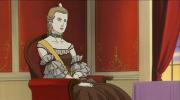
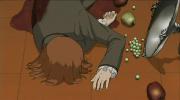
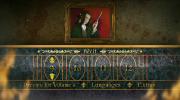
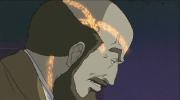


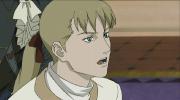
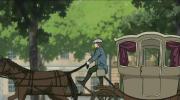
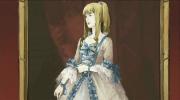



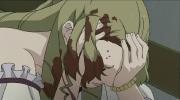
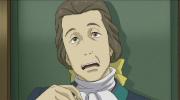
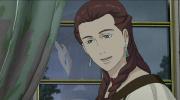
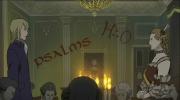


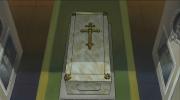
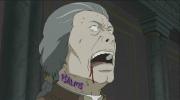
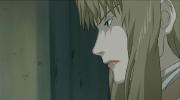
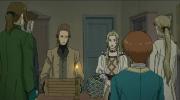










































Your Opinions and Comments
Be the first to post a comment!